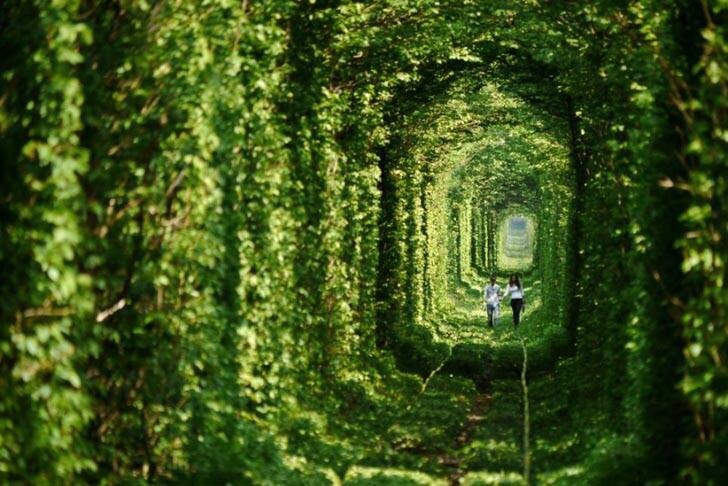Moving to the United States was a big shock for me. The understanding of sustainability in most parts of the country is still a city in Russia, and the concern for our climate ranks lowest on the list of all concerns. It reveals a lot; both about their political system, the culture, and people’s relation to nature.
But how come then, that the United Sates has fostered some of the most prominent nature-writers and thinkers of all times?
Here are my own thoughts on climate change and our culture through the works of Thoreau and Bill McKibben. An European looking at America.
I belive, that in order to carve and paint a society and a future which are not self-destructive, we must seek this awaked stage of living, and not experience the world through a filter that blocks our view of reality and the consequences following from our actions and mindset. And return roots of purely communing with nature, rather than create a modern ecocriticism that focuses too readily on graphs and charts.
Thoreau, America’s, and perhaps the world’s greatest nature writer, wrote in his essay Walden; or, Life in the Woods (1854):
“We must learn to reawaken and keep ourselves awake, not by mechanical aids, but by an infinite expectation of the dawn, which does not for sake us in our soundest sleep. I know of no more encouraging fact than the unquestionable ability of man to elevate his life by a conscious endeavor. It is something to be able to paint a particular picture, or to carve a statue, and so to make a few objects beautiful; but it is far more glorious to carve and paint the very atmosphere and medium through which we look, which morally we can do. To affect the quality of the day, that is the highest of arts.”
In a conversation with New Yorker Magazine environmental journalist Elizabeth Kolbert, Bill McKibben, climate activist and nature writer, commented:
“One would think that if our big brain were equipped to get us into this kind of trouble [man-made climate change], it would come up with something to get us out of it. […] OK, so the hope is not that the brain is going to get us out of this mess, but that maybe the human heart can. We have to hope that there is something in our culture that evolved, not biologically but culturally over time, that lets us have enough concern and compassion for the rest of creation, for things deep into the future, generations to come.” (The American Prospect, February 7th, 2014.)
Cultural awareness is a recurrent theme when we debate climate change, and though McKibben is not as metaphorical in his prose as Thoreau, the “expectations of the dawn” which brings enlightenment for Thoreau, is addressed by McKibben as having enough concern and compassion for “things deep into the future, [and] generations to come”.
What went wrong?
If we try to paint a picture of these cultural and narrative dead-ends we have created for ourselves that prevent our big brains from seeing clearly – there seem to be one loud answer out of many – we must avoid an idealized and simplified version of reality. Ever since the Romantic movement’s response to the Industrial revolution we have been idealizing nature and treating it as a treasure for our own good. If we look at all the classical pastoral narratives they celebrate the simple and innocent life in nature – it’s nostalgically idealized – it’s an image, a construction, and a made up idea of something never experienced.
These images has shaped our understanding of what nature is. Instead of actually discovering nature where it is and getting our hands dirty and it’s embedded all the way into the very core of Western culture.
I ask for us all to keep an eye on this – oversimplifying nature does it no favors; nature is a complex ecosystem, and someone who expects simplicity is also closing their eyes to nature’s infinite facets, an approach which will eventually lead to us creating an unrealistic image of nature, and, in the end, to nature’s eventual destruction.
Though Thoreau at a first glance appears to fit the American pastoral, he did not decide to go and live nature in order only to live in simplicity, but “went to the woods because [he] wished to live deliberately” and he “wanted to live deep and suck out all the marrow of life,”.
What makes Thoreau different from most examples of American pastoral is his lack of nostalgically sanctifying the rural past, nor does he fully embrace the new developments in society:
“The nation itself, with all its so-called internal improvements, which, by the way are all external and superficial, is just such an unwieldy and overgrown establishment, cluttered with furniture and tripped up by its own traps, ruined by luxury and heedless expense […] the only cure for it, as for them, is in a rigid economy, a stern and more than Spartan simplicity of life and elevation of purpose” (Walden).
(A side-note; nostalgia is a HUGE thing on the American market today – take a look at everything that is made to look “old” and like something from the quite, rural past…)
This purpose of linking oneself to nature, to become self-aware, is what drives Thoreau’s work and philosophy.
Thoreau’s reaction against the (his) modern scavenging culture, also serves as an illustration of his mindset. There can be little doubt that Thoreau felt that the mindset of his time lacked awareness – but Thoreau’s thoughts also resonate in my introductory quote by McKibben, in which he calls for more “concern and compassion” in today’s society.
I often have to remind myself when I’ve created communication and publication material for my company Cultura21 Nordic – where our main aim is to debate and involve our customers and volunteers to create cultures of sustainability – that the way I write about nature, is also the way my mind sees it – and sometimes that says more about me than the nature I’m actually writing about.
This construct of mind, and though I try to avoid the simple and blinding view on nature – is also my relation to nature. It becomes inseparable.
And this is why I started working with sustainability in the first place – because in order to achieve an understanding of our world and how we treat it – we really must understand our mind and how it works.
When I started reading McKibben last year, four years after I founded Cultura21 Nordic, I felt a joy I believe many have felt – an echo his words and thoughts…he writes in his book Earth, Making Life on a Tough New Planet writes:
“We need now to understand the world we’ve created, and consider – urgently – how to live in it”.
McKibben does not only respond to the urgent climate crisis, but taps into the discourse and attitude of the ability to understanding man’s link to nature – by becoming aware – and not by living like scavenging hawks, with which Thoreau compare the society of his time. Thoreau, who spent most of his time mapping this connection to nature stresses;
“We must learn to reawaken and keep ourselves awake” (Walden).
For both Thoreau and McKibben this awareness, or state of mind, naturally results in more than mere nature writing. It also results in actions driven by what they have come to realize in their awakened state.
Ecocriticism, then, is not just the purely academic study of nature writing, and thus, confined to the safety of campus. Rather, it incorporates the reality of what it describes in the world around us; namely, that ecocriticism cannot ignore the practical, and therefore also the political, reality of writing about nature. This is why ecocritical scholars are often viewed as pro-nature activists, even radicals.
After being arrested at the White House at a demonstration against the expected oil pipeline from Canada to Texas McKibben said: “It’s time to end the tyranny of oil. I will have the most transparent government in history.” (O’Connor, Kevin. “Bill McKibben Jailed After White House Tar Sands Pipeline Protest”, Commondreams, org, August 21, 2011)
But because the progressed culture which the Walden Pond philosopher spoke against has resulted in the climate crisis of today, McKibben, and others like you and me, have felt the need to take much stronger and aggressive action for nature than Thoreau had to do in the 1850s – but since they both search for the cultural roots to our problems, their language, as we see above, is similar.
For me as an European environmentalist, getting to know R. W. Emerson and Thoreau was an eye-opener. Emerson writes in his essay Nature from 1836: “Standing on the bare ground, my head bathed by the blithe air, and uplifted into infinite space, – all mean egotism vanishes. I become a transparent eye-ball; I’m nothing; I see all; the currents of the Universal Being circulate through me; I am part or particle of God.” (9).
Although his words are old-fashioned and poetical, not at all like the environmental language we use today, he has a point. T-R-A-N-S-P-A-R-E-N-C-Y! To become so enlightened, educated and AWARE of our of mind, our culture and of this world that we become a transparent eye-ball, or particle, that sees everything.
We need to understand, of course, that our ways of thinking nature and culture are VERY different. The American’s lived in wilderness in the 1850’s, which its European Romanticist antecedent had long since left behind in its own industrial-age smog. A smog which had not yet reached American shores to the same degree, allowing for a particularly American nature writing whose proponents and readers had not yet met massive deforestation, urban respiratory problems, and polluted rivers as a matter of course.
Thoreau, Emerson and their time’s cultural and philosophical equals, saw the human body and the entire human experience as integral parts of nature, not entities separate from it, the way romantics did. While romantics merely dreamt of getting dirt under their nails, transcendentalists actually went out and did so, adding spiritualism to the inquiry and sought to development themselves through the experience.
There’s a huge difference between believing and imagining to understand nature and then be out in it and try to fully understand it. How many of you city people actually go out to the woods? Or do you sustain your green talk at home?
Thoreau moved out to his cabin in protest against the developing industrial cultures that he believe separated humans from nature and thereby divorced them from reality. He addressed an urgent need for reconnection to simple life and nature. In doing so, Thoreau put the human being front and center in nature, not as a distant advocate, but as a front-line participant loyal to the wilderness he serves.
Thoreau would also formulate thoughts that later inspired the American naturalist John Muir made use of when establishing the first national parks in America (The Sierra Club, Web.). Thoreau wrote in his essay Walking: “In wilderness is the preservation of the world.” to which Muir answered: “When one tugs at a single thing in nature, he finds it attached to the rest of the world.”.
Thoreau before him saw his and his countrymen’s connection to nature in a radically different way, as if they all were was mere particles in a bigger universe they did not command or control:
“It was very queer, especially in dark nights, when your thoughts had wandered to vast and cosmogonal themes in other spheres, to feel this faint jerk, which came to interrupt your dreams and link you to Nature again. ” (The Ponds, Walden)
But where Thoreau thrives in his solitude, the modern fight against climate change is a multifaceted, worldwide, complex, politically supported and demonized struggle. Thoreau had the luxury of being a lone ranger, and released himself from his contemporary society to do what modern environmentalists would call “to go off the grid”, which means to live with out the comfort provided by the conventional modern society.
To go off the grid is widely practiced among environmentalists today, as well as others skeptical of modernity. There are even magazines and articles offering detailed advice on how to live this kind of life.
I know I began by saying that Thoreau and Ecocritics see nature as an entity whose integrity is inviolate and will always have its own distinct voice. But there’s a catch when placing oneself off the grid: when doing so, even when intending to commune with the purest version of nature, one’s view of it immediately becomes skewed, because the nature experience comes into being as a direct response to the society one abhors, making the rebelling participant just as much an observer.
This inherent catch goes against a comprehensive understanding of nature as a whole, and is one that modern environmental discourse will have to address in due time. We humans don’t get to choose our rebellions and use nature to suit our moods.
How many times have we experienced this, perhaps – or haven’t we and should we be worried that we have not experienced this?
“My mind chattered happily away […] who would win the presidential election? What were some neat things I could buy? […] The days wore on […] – no radio, no paper, no conversation. I could feel the chatter in my head begin to subside. Either the peace of the forest was beginning to penetrate, or the stocks of mental junk food were starting to dwindle; whatever the cause, the buzz turned to hum, and once in a while to quiet.” (Bill McKibben, Introduction to Walden).
Even McKibben, the philosophical leader of one of the worlds’s biggest climate organizations operating in more than 180 countries, and as a person practicing civil disobedience almost as an art form, is still himself lured in by the dangers that we’ve been warned against:
“The mental junk food”, “neat things to buy”, etc.:
The interconnectivity that McKibben refers to in Walden is what many environmentalists forget as being the cornerstone of sustainability. It is easy to understand Economy, Culture, the Environment and the Social aspects of society individually, but it is hard to find the spiritual glue that ties them all together and offers us a transparent understanding of the world. McKibben’s solution is clearly that we must seek this spiritual connection to our surroundings and ourselves in this world because actions for nature are not sustainable without thoughtful motives behind them.
But Thoreau, in his time, had no idea that the Earth would be on the edge of existence and struggling for breath one hundred and fifty years later, when he went on his daily walks to and from his cabin in a wilderness that today would be considered almost virginal.
Had he lived today he would probably have cared very little for our failing cultures, and have had little trust in the squabbling amongst those of us fighting united against the unsustainable forces in society, even if he would have supported our cause. We can probably blame Thoreau’s fame as one reason for its canonization and exhortation to consume, rather than commune with, nature.
We need to rejects modern society’s corruption of Thoreau’s activist ideal.
Indeed, environmentalists rail against our capitalist colonialization of Thoreau’s cabin for an overall culturally superficial and pernicious prop in a nature that has become a consumable luxury item rather than the force that sustains us.
“Consider his [Thoreau’s] whining about all the signs hanging above the stores on Concord’s Main Street—they so oppressed him with their demand for getting and-spending that he stuck to back streets, which is pretty comical when you consider we’d stick them in colonial Williamsburg to depict a bygone era of quaint gentility”. (McKibben)
Many of us environmentalists today cry out for more connectivity as the solution to remedy our disconnect from nature and the ensuing climate changes. Their fear is that we have been disconnected from each other, that we merely need to be informed about the changing world in order to become truly enlightened. But we drown in information. And we’ve come to celebrate the great nature writers in theory and not so much in the way we act or do our job. (This is where green-washing comes in).
Even in the 1850’s Thoreau said:
“Men think that it is essential that the Nation have commerce, and export ice, and talk through a telegraph, and ride thirty miles an hour,”
In a complex culture based on a profit-oriented economy, where many of our political leaders still ignore man-made climate change anymore, the evidence is self-explanatory and inescapable. (97% of all climate scientists believe this to be fact (NASA, Consensus)), which is why we need to ask ourselves, How do we solve our climate problems?
Unfortunately, many of us are trapped in the game of earning enough money to pay for health insurance and food for our children that a luxury like going off-the-grid, á la Thoreau, is something we’re convinced we cannot afford.
But is this true? Will we not survive if we did it? Will our children be happy without their iPads? “What danger is there if you don’t think of any?” Thoreau replies. (202, Walden).
The danger is, that we for real become eco-illiterate because we romanticize and simplify a complex system: the ecosystem and our cultures. The other danger, which is that we are scared of an imagined enemy which might lead us to actually solving our climate problems – namley – change and awareness.
So yes, let’s go along and solve our urgent climate problems with engineers, doctors and chemists, we need them – we really do! But they cannot change our culture, or the way we think. That’s our job.


